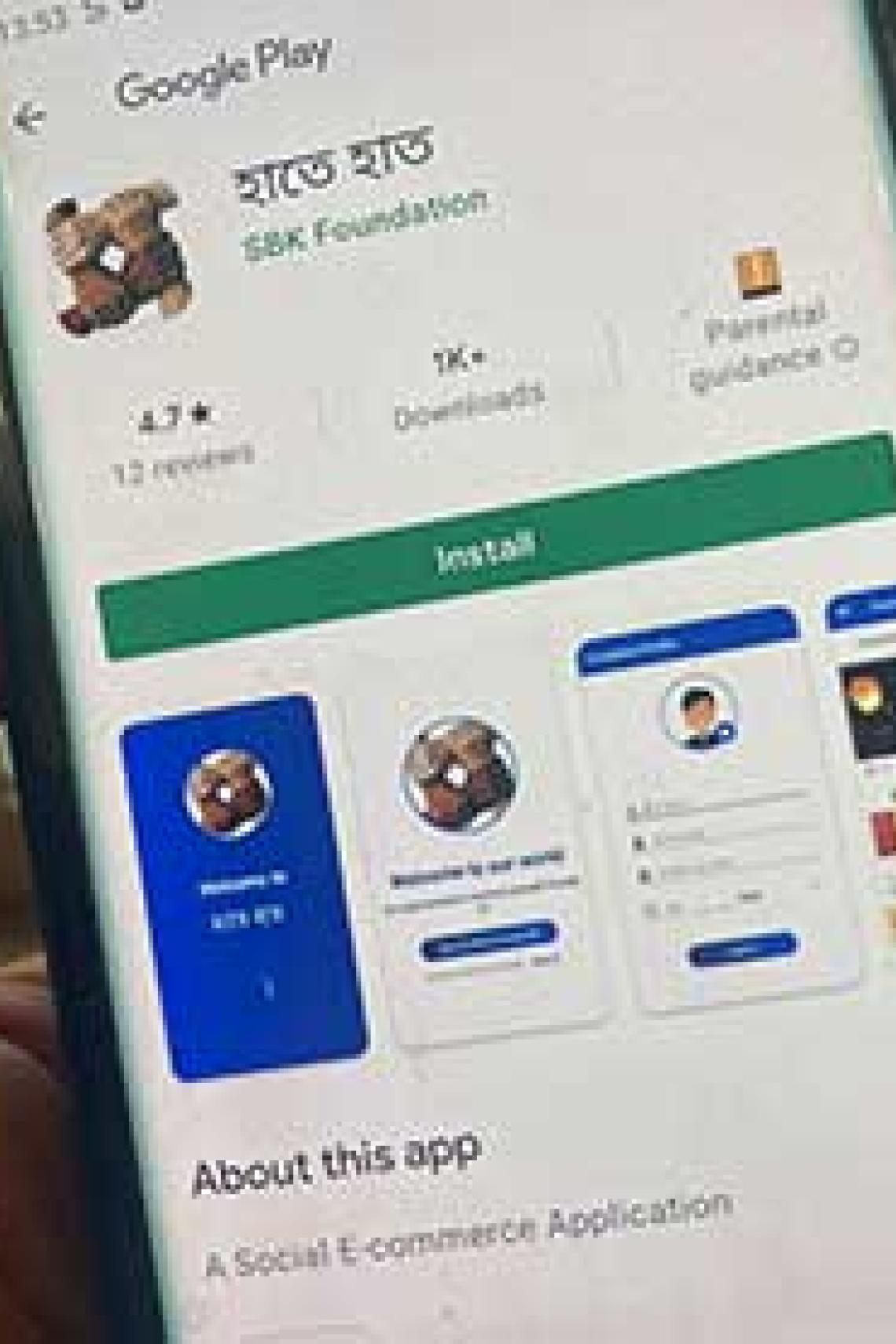Researchers develop short video app targeted at most marginalised
Researchers at ODID and the University of Birmingham have developed and trialled a short video app targeted specifically at marginalised communities to enable them to share their skills and stories and generate income.
The app, Haate haat (hand-to-hand in Bengali), was developed as part of a project to create a business model that could harness digital technology to overcome the constraints that prevent the poorest people in low-income countries (LICs) – particularly women and young people – from engaging in economic activity.
The researchers noted that while research on the role of ICTs in development had explored the use of the internet and mobile phones in supporting economic inclusion in LICs, the potential of increasingly popular short video platforms – of which the best known is perhaps Tik Tok – had been overlooked.
The project began with a case study of the Kwai app, a short video app that has been particularly widely adopted in rural areas and small cities in China, to understand its impact for poorer people. In 2020, Kwai had 300 million daily active users – 200 million of them rural users – making use of the app to share their lives, learn new skills, develop social networks and generate income.
Based on the lessons learned from the case study, the researchers worked with the SBK Foundation, an NGO in Bangladesh, to develop the Haate Haat app, incorporating many of the features identified from the Kwai case study as facilitating the involvement of marginalised groups.
These include a simple user interface – it is possible to post a video even for users who cannot read or write; in-app training programmes; a ‘fair’ recommending mechanism that means every video has an equal chance of appearing before viewers; and mechanisms that enhance social interaction and enable users to monetise their content through gifts, subscriptions, adverts and sales. The app is free to download and no commission is charged on sales.
The research team then carried out a randomised controlled trial to assess the impact of the app. They carried out a baseline survey among 1,800 people in three cities in Bangladesh to learn more about whether and how these people made use of apps and to explore current constraints to their use.
In April-May 2020, the researchers then trained 822 people in the treatment group to download and use Haate Haat; most made use of the app to promote and sell handicrafts, clothing, food and agricultural products. As COVID took hold, researchers recognised an additional role for the app in enabling users to connect and communicate with friends and relatives during the pandemic and seek information and support, and another 532 users were trained in August 2020.
The team are now conducting a follow-up survey to evaluate the impact of the app on those who used it and to gain a better understanding both of the constraints on its use and on the conditions needed to maximise its benefits.
The intention is to scale up Haate Haat nationwide in Bangladesh and there are already discussions with the country’s biggest mobile financial services provider about incorporating Haate Haat into its ‘super app’, making it accessible to its 30 million users.
The app was developed as part of the Inclusive Digital Model (IDMODEL) project led by Professor Xiaolan Fu of the Technology and Management Centre for Development (TMCD) at ODID and Professor Pervez Ghauri of the Department of Strategy and International Business at the University of Birmingham.
The project is supported by the Economic and Social Research Council (ESRC) through its Global Challenges Research Fund (GCRF).
Haate haat can be downloaded from Google Play here.
Watch a video about Haate haat here.

